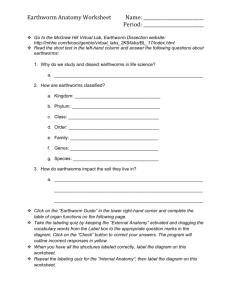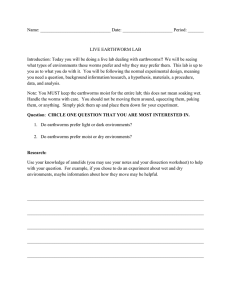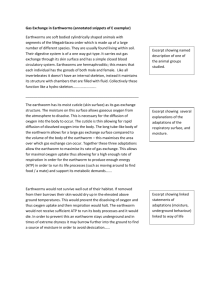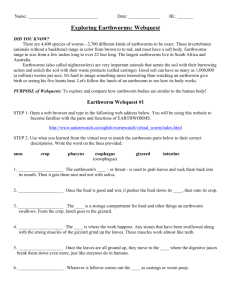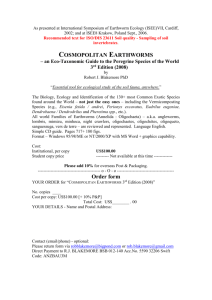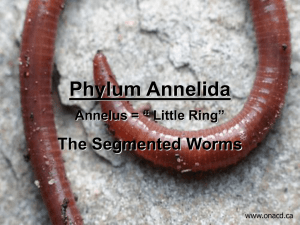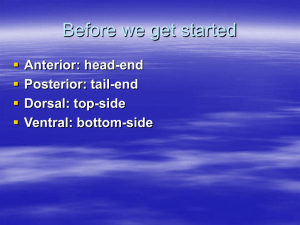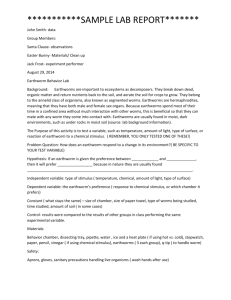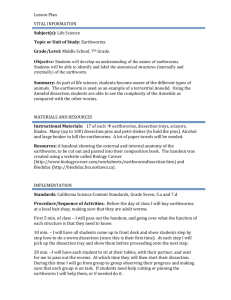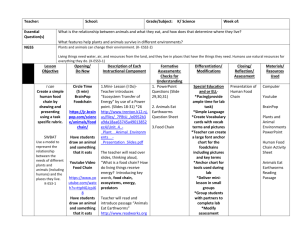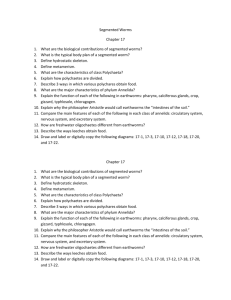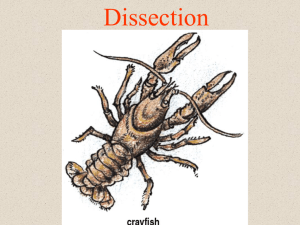Earthworm Behaviour Lab
advertisement
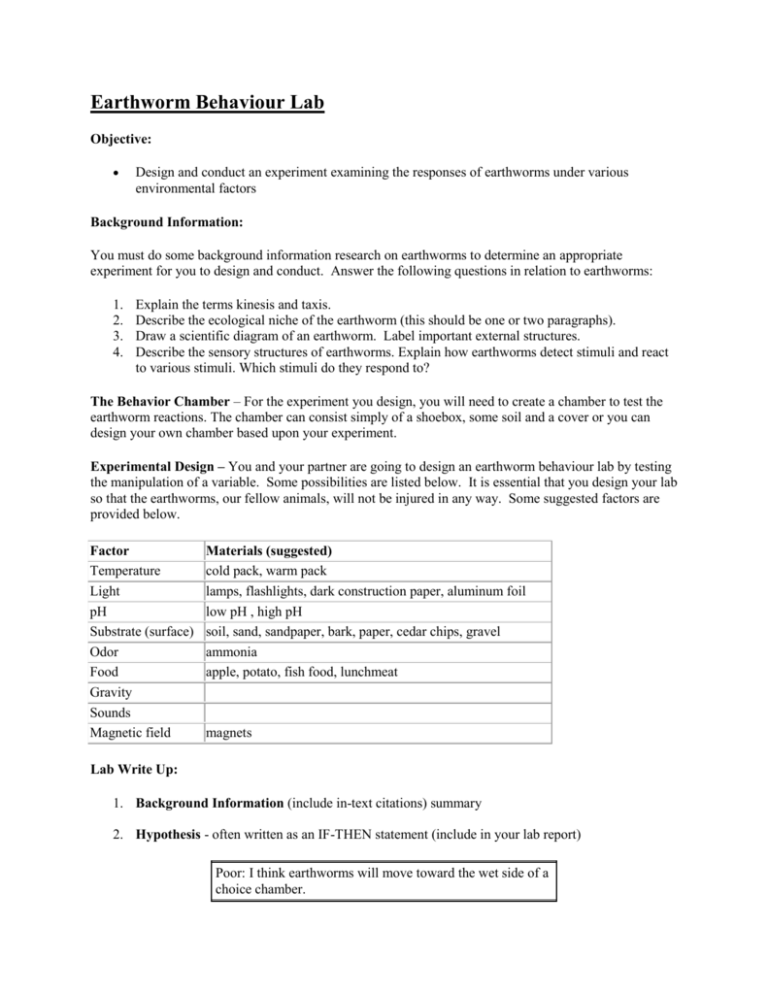
Earthworm Behaviour Lab Objective: Design and conduct an experiment examining the responses of earthworms under various environmental factors Background Information: You must do some background information research on earthworms to determine an appropriate experiment for you to design and conduct. Answer the following questions in relation to earthworms: 1. 2. 3. 4. Explain the terms kinesis and taxis. Describe the ecological niche of the earthworm (this should be one or two paragraphs). Draw a scientific diagram of an earthworm. Label important external structures. Describe the sensory structures of earthworms. Explain how earthworms detect stimuli and react to various stimuli. Which stimuli do they respond to? The Behavior Chamber – For the experiment you design, you will need to create a chamber to test the earthworm reactions. The chamber can consist simply of a shoebox, some soil and a cover or you can design your own chamber based upon your experiment. Experimental Design – You and your partner are going to design an earthworm behaviour lab by testing the manipulation of a variable. Some possibilities are listed below. It is essential that you design your lab so that the earthworms, our fellow animals, will not be injured in any way. Some suggested factors are provided below. Factor Temperature Light pH Substrate (surface) Odor Food Gravity Sounds Magnetic field Materials (suggested) cold pack, warm pack lamps, flashlights, dark construction paper, aluminum foil low pH , high pH soil, sand, sandpaper, bark, paper, cedar chips, gravel ammonia apple, potato, fish food, lunchmeat magnets Lab Write Up: 1. Background Information (include in-text citations) summary 2. Hypothesis - often written as an IF-THEN statement (include in your lab report) Poor: I think earthworms will move toward the wet side of a choice chamber. Better: If earthworms prefer a moist environment, then when they are randomly placed on both sides of a wet/dry choice chamber and allowed to move about freely for 10 minutes, most will be found on the wet side. Make sure to include your independent variable, dependent variable and control variables! 3. List all Materials and Apparatus 4. Provide a step-by-step Procedure. 5. Prepare an Observations and Calculations section. You should obtain both qualitative and quantitative data. Graphs are a very good idea as well! 6. Discussion – Discuss your results. Are there any sources of error? Did the results match your hypothesis? Try to explain discrepancies in results. Is there anything you would change if you were to do this lab again? 7. Conclusion – State your findings with the main data. 8. Provide a reference page at the back (APA). * Lab should be written in third person, past tense!! Important Due Dates: 1. Completion of Background Information, Hypothesis, and Procedure: ______________________ 2. Perform lab experiment: ____________________________________ 3. Write up due date: __________________________________
